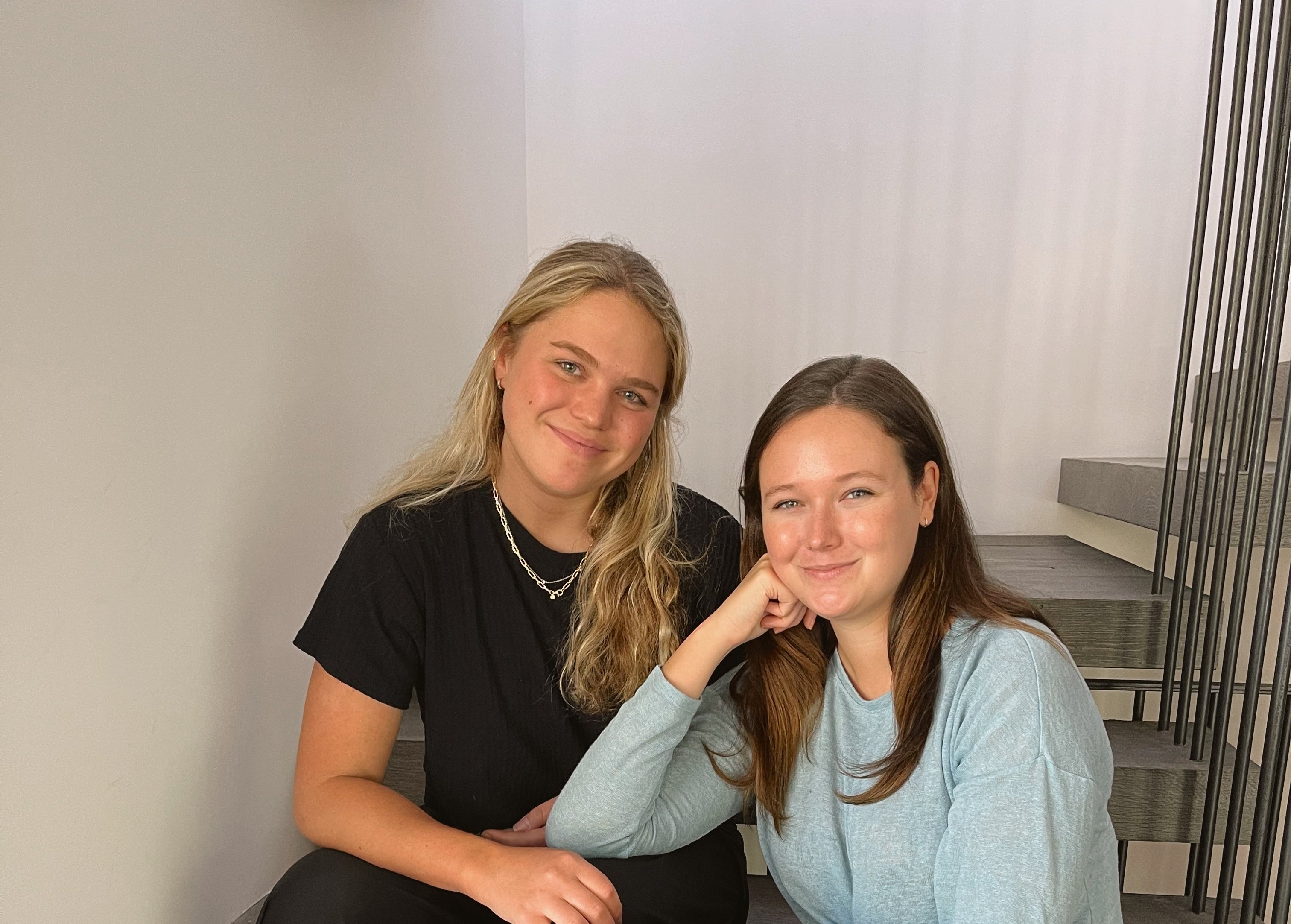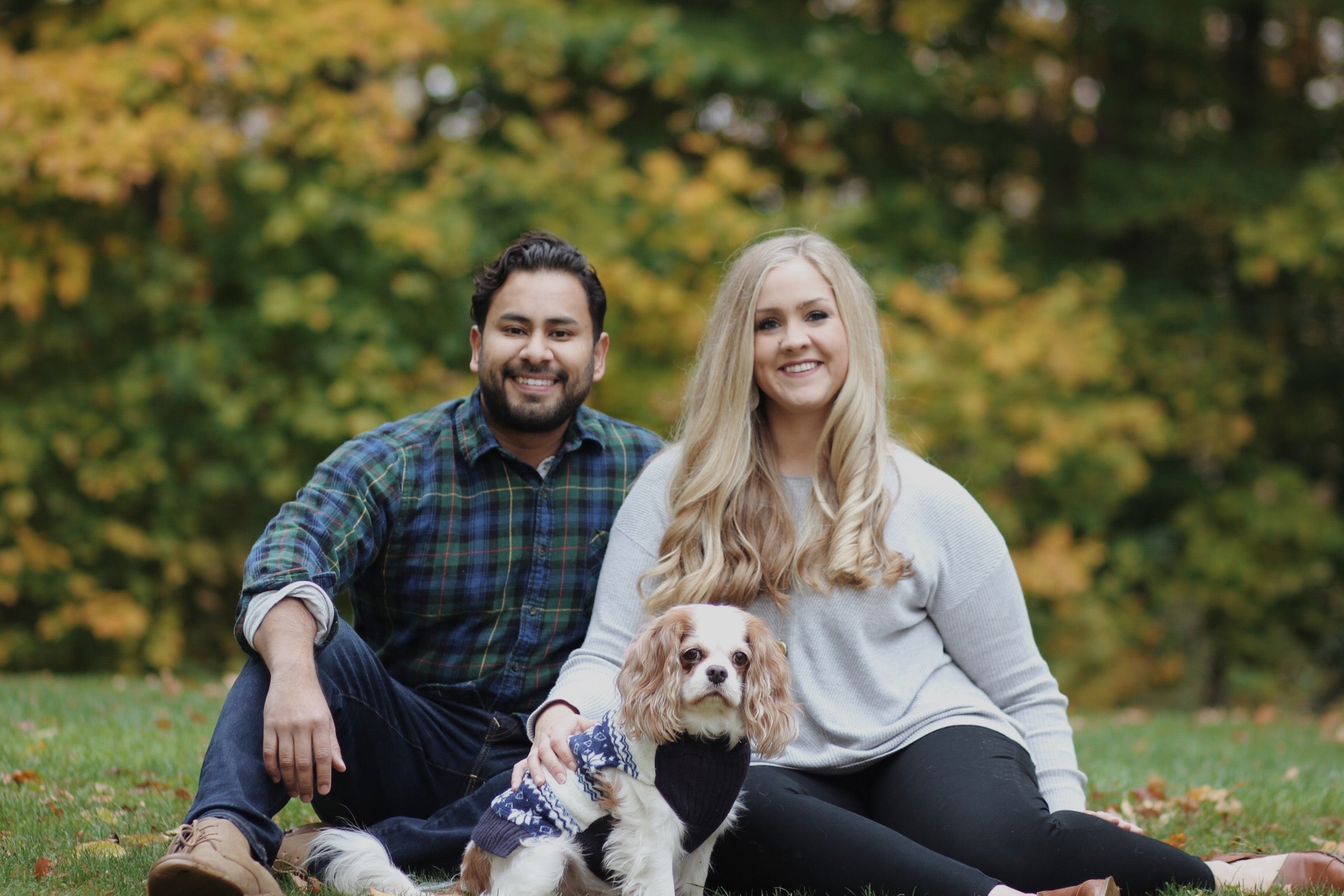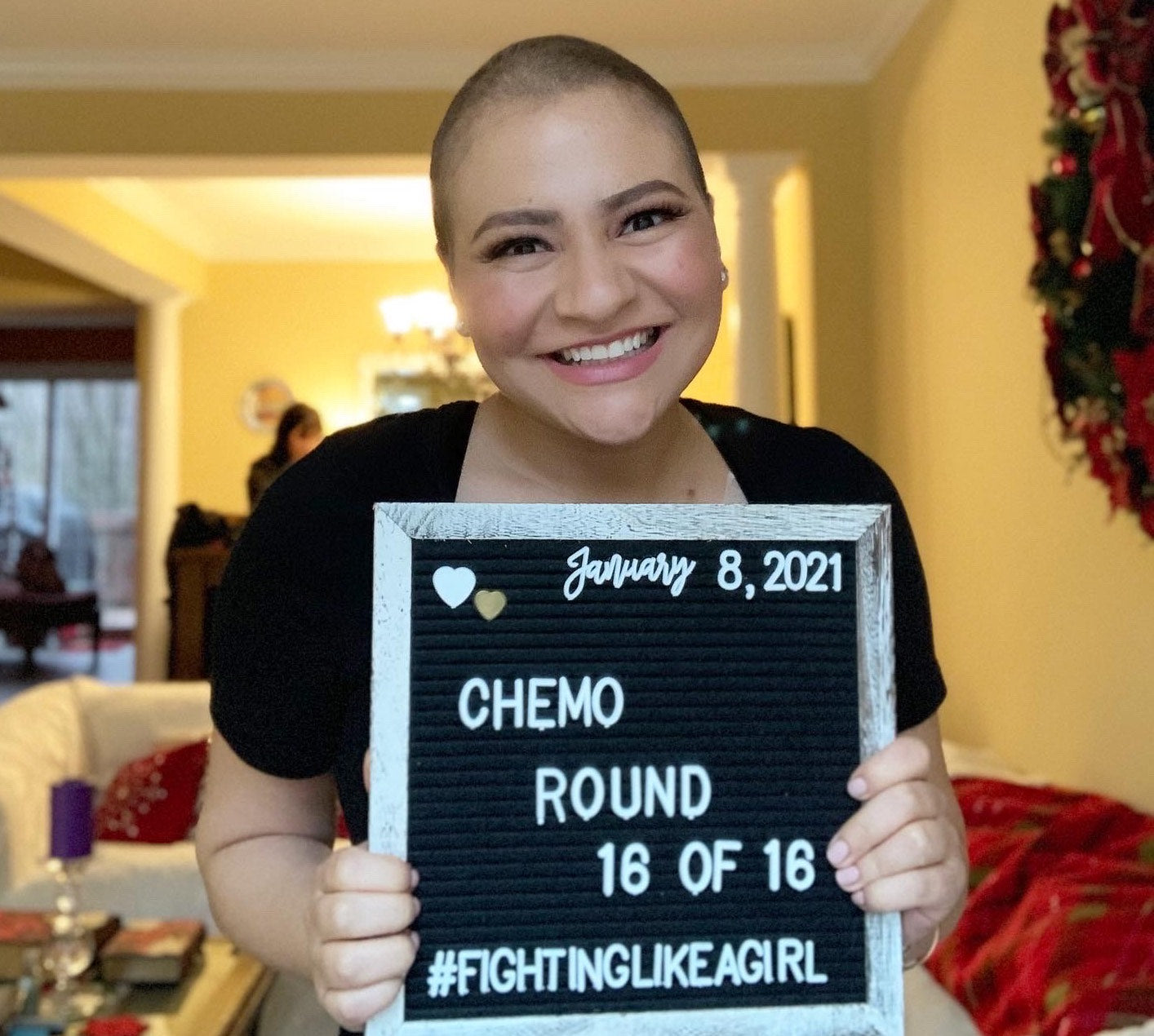Have you ever suddenly gotten your period and realized you don’t have a period product? Have you then gone on an exhaustive search to find one only to come up short? We’ve definitely been there and we know we aren’t alone! Easy access to period products (and even proper hygiene care and education) should be a given, but we still have a long way to go to actually achieve this.
Today is Menstrual Hygiene Day and we want to talk about an issue that directly relates to this day: period poverty. For those who aren’t familiar with the term, period poverty means a lack of access to period products, menstrual hygiene education, toilets, hand washing facilities, and waste management. The German-based NGO WASH United established Menstrual Hygiene Day (MHD) in 2014 to bring awareness to and to fight the stigma surrounding menstruation and the many limitations girls and women feel because of it. You can learn more about the movement here.
We invited the founders of social impact fashion brand Oluna to further explore this topic. We discussed how they have joined the fight against period poverty, what they hope to accomplish through their brand, and what female empowerment means to them. Meet the women behind Oluna:
Emmy and Ali met over fourteen years ago when they attended an all girls-school together. Both women have always been interested in giving back to the community and tackling important social justice issues. While a student at Penn, Emmy majored in Criminology where she learned the importance of taking an upstream approach to lowering crime in America. After learning about period poverty in prisons, she realized that she could target a cause of community dysfunction. Ali addressed issues in her community by serving as a student mentor in a low income middle school where she saw and understood first-hand the effects that period poverty had on young girls.
 Where does fashion fit into all of this? Emmy was an international model where she had the opportunity to see the behind the scenes of marketing and selling clothing. Ali’s long-lasting passion for fashion comes from the inspiring legacy of her great-grandfather Stanley Marcus (Yes, of Neiman Marcus). Once COVID hit, Emmy moved back home to Dallas and she and Ali decided this was the perfect time to join forces to create Oluna. Keep reading to learn about their efforts to address period poverty.
Where does fashion fit into all of this? Emmy was an international model where she had the opportunity to see the behind the scenes of marketing and selling clothing. Ali’s long-lasting passion for fashion comes from the inspiring legacy of her great-grandfather Stanley Marcus (Yes, of Neiman Marcus). Once COVID hit, Emmy moved back home to Dallas and she and Ali decided this was the perfect time to join forces to create Oluna. Keep reading to learn about their efforts to address period poverty.
K: What was the inspiration behind your brand?
O: Menstrual hygiene issues didn’t dawn on me until the past few years - in fact, I hardly thought about periods at all. I would have one, I would hide it - and that was the extent of my thought. When I was an undergraduate at Penn, there was a movement in 2015 called “year of the period.” News and social media catapulted the once hush-hush topic into the open. I became particularly interested in the issue because I saw that you could approach it through every lens - be it from a research, policy, education, environment, or access approach. To me, it felt like such a common sense issue that could be approached in dynamic ways. After 2015, however, the news cycle surrounding menstruation seemed to ease up.
I began reaching out to the nonprofits in the period poverty space and realized that they all suffered from the same problem: lack of access to funding. [T]he best way to support these nonprofits’ impact was to create a for-profit brand that could give back and accelerate their efforts, while also continuing the discourse around period poverty. By utilizing brand identity, I could reframe the ways in which we view and talk about periods, as well as make meaningful impact, to keep the conversation going. I could also open the conversation up [more] through a fashion line than if I created a menstrual product with a social impact edge.
K: Oluna is such a unique name - how did you come up with it?
O: Oluna is a reference to the popular myth that periods are related to the lunar cycle. Although this myth has been discredited, it is still widely referenced. Since periods are the oldest standing taboo, there are many misconceptions, as well as lack of research. I named the company Oluna to emphasize the misinformation and mysticism surrounding the menstrual cycle. The funds we donate will help finance research, education, and policy projects around menstruation.

K: That positive reception of the brand must’ve been so reassuring! Now, I know that you operate using a one-for-one model similar to Toms and Bombas. Can you tell us more about your mission?
O: Typically “One-for-One Model” companies create a parallel with the item that they are selling with the item that they are donating. Period poverty is a bit more complicated since it is a little talked about issue [that] is shrouded in stigma. Shoes and socks? Zero stigma. That’s the difference. I want to open up the conversation around period poverty in a fun and playful manner where everyone feels comfortable asking questions. With this in mind, I’ve set out to design a piece of apparel that all women will not only feel comfortable in, but also whimsical and groovy! We chose to create a clothing brand to create impact because it opens the conversation to more of the population than if we had done a one-for-one model with a period product. It also allows the conversation to continue past a wave of social media attention.

I designed these pants for every woman. Even though it isn’t talked about, period poverty is experienced by all women at some point in their lives. Every woman has the shared panicked experience when their period has arrived unexpectedly and they are in need of a menstrual item - yet none are provided. I hope these pants will make every woman feel good about themselves and confident enough to ask for what they deserve - menstrual equity. And we hope to expand to men - because they should definitely be included in this conversation!

K: Then how do you hope to stand out among brands with a similar business model?
O: Oluna goes beyond the traditional “One-for-One Model” [because we] recognize[d] that while helpful to those in need, the year’s supply of products only goes so far. For this reason, we have also dedicated half of the merchandise proceeds to fund menstrual health and policy initiatives so that we can begin to create a foundation for long term, meaningful change. [We] will also use our platform to inform and enable our consumer base on how to create ground up impact within their own communities. With period poverty, one person really can make a difference. Whether that is writing to their local representative disputing the additive sales tax on feminine care items or asking their employer to include menstrual products in the bathroom, Oluna aims to arm the consumer with the information and data to push for menstrual equality.
K: So, what made you decide to sell pants instead of a different clothing item?
O: Oluna is a brand with a soul - Confident, Playful, Comfort-Focused, Socially Conscious, and Empowering. At the core of our fashion philosophy lies the DNA of the essential “new normal” wardrobe: comfortable, stylish, multi-purpose. We understand the lifestyle needs of our customers - she has a big heart - whether it’s loving her body or her community. She values personal style and philanthropy. She looks to us for lifestyle pieces that empower her to not just feel good, but also do good. We wanted to design something that fit this “new normal” lifestyle that was brought on by the pandemic and was inclusive of all sizes.


K: The pants do look incredibly comfortable and I can see how you’ve shown just how much soul Oluna has through the fun colors and patterns you use. Can you tell us how exactly you carry out your business model and mission?
O: Our one-for-one model operates through a partnership with Days For Girls International - a nonprofit organization. We are able to offer a patented washable pad solution that lasts users up to 3 years. The kits are made from locally sourced materials, sewn with high quality standards by volunteers, and the most eco-friendly option out there! The fabrics are bright to make each user feel special. Oluna will also educate those who receive our period products on menstrual health and hygiene. We include infographics and informational pamphlets on how to properly use and sanitize the product, basic information on what a period is, and commonly asked questions [in every Days For Girls kit].

Since I produced the pants in Dallas I decided to take a local approach to distributing the kits. I am focusing first on homeless shelters in the Dallas area and I am currently partnered with ten shelters to receive the items. I hope to expand to all of Texas by the end of 2021. I also hope to extend beyond homeless shelters to whoever else may be in need, [such as] food banks, schools, prisons, etc.

K: Speaking of period education, I’m sure you had quite an interesting experience learning about menstruation since you attended an all girls’ school. What was that like?
O: At the all-girls school Emmy and I attended, we had health classes in 5th and 6th grade that taught us "period education." I will never forget though that I remember learning that you had to wear both a pad and a tampon at the same time when you have your period, so I am not sure how helpful the classes really were. Looking back, in my opinion, it felt more confusing and overwhelming. Being surrounded by all girls did make a big difference though. In that sense, we were definitely lucky because while I still experienced the same shame and embarrassment I think every young girl experiences at that time of her life, I cannot imagine how much worse it is at a co-ed school.
K: Is there anything in particular you want people to know about period poverty?
O: In the U.S., women are more likely than men to experience poverty, yet current policies exclude menstrual products from public benefits, such as food stamps, SNAP or WIC, and exempt them from health insurance, and Medicaid. Children add an extra burden for individuals struggling to afford products. Studies show 1 in 5 teenagers have struggled to afford period products and 1 in 4 teenagers have missed class because they do not have proper feminine hygiene care. Period poverty is an issue that can be solved within our lifetime. One person can truly make a difference [and we] hope to empower our communities to do just that!
K: Since you are a female-focused brand, can you tell us what female empowerment and womanhood mean to you?

O: Empowering and supporting women from every angle is a top priority for Oluna. Our manufacturer and fabric supplier are both certified women-owned businesses in the Dallas area. We have partnered with incredible female photographers, stylists, lawyers, and agencies. All truly inspiring women that we’ve had the pleasure of getting to know. Although women have made great strides in the workplace, just 2% of venture capital expenditure went to women owned businesses in 2020. We aim to provide female role models for younger generations by lifting up women throughout our company.

K: Thank you so much for being here today! I really enjoyed hearing about your mission and your continued efforts to tackle such an important issue. Is there anything else you would like to share?
O: People have different comfort zones. Whether it’s writing a tweet, signing a petition, posting a petition, calling your state legislator, going to your local school board, town hall or school, writing a letter to an editor, going up to HR with productivity data on why employers should include products in workplace bathrooms, or posting on Instagram, you can elevate the dialogue around a once forbidden topic. We encourage people to do whatever falls in their comfort zone, because it all matters. It’s all activism. It’s all good.
We hope this conversation was a thoughtful introduction to the complexities of period poverty and period stigma. We want to explore more of these issues since we are a brand that supports women throughout all their hormonal cycles. To further connect with Oluna, you can check them out at @oluna.co or on their website.





1 comment
Their customer service is horrible. I ordered a pair of pants 10 days ago. I never received a receipt. I tried to contact them twice to get a receipt and a status on my order and have yet to hear back from them! Very dissatisfied!
DeAnn
Leave a comment
All comments are moderated before being published.
This site is protected by hCaptcha and the hCaptcha Privacy Policy and Terms of Service apply.